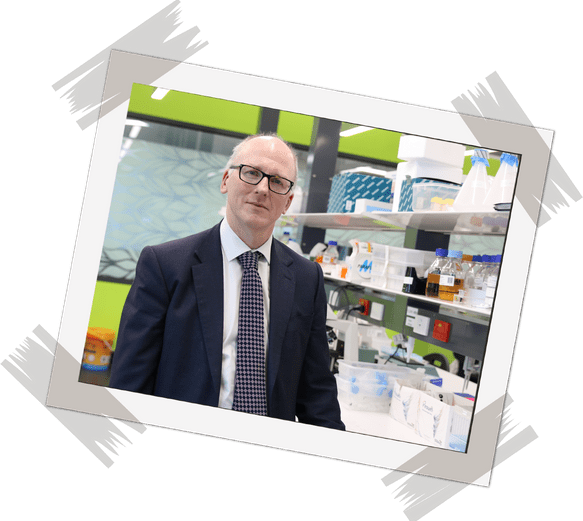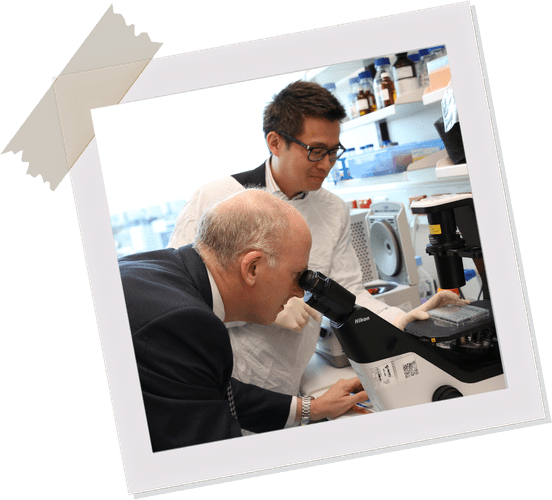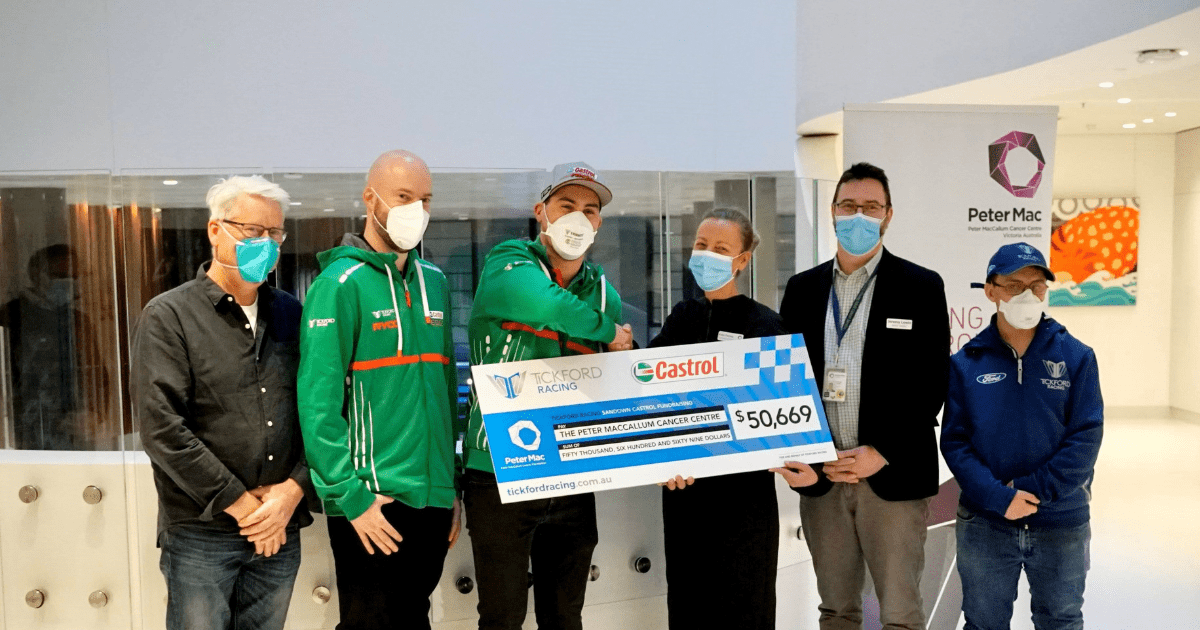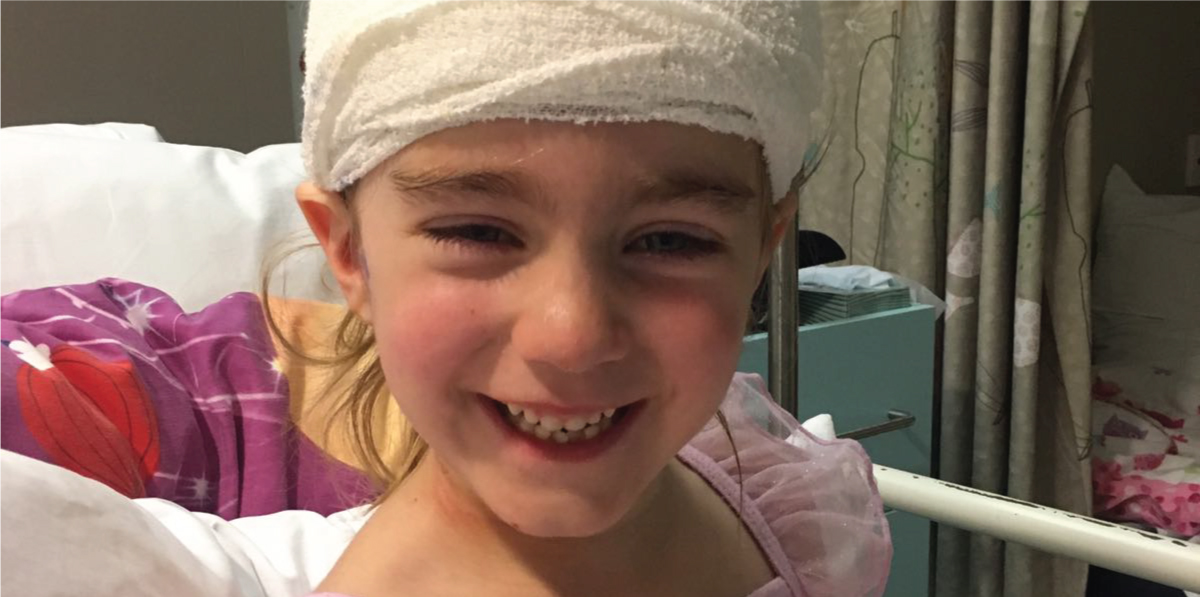Professor Heriot's research into colorectal cancers
16 August 2022
As Peter Mac's Clinical Director of Cancer Surgery, Professor Alexander Heriot has great ambitions for using personalised cancer treatments to save lives in the future.

He says that this area is seeing incredible progress through research, and has huge potential. Thanks to support like yours, here’s what Professor Heriot’s work aims to achieve:
“What I’m doing right now with my research is trying to personalise colorectal cancer treatments. The idea is that by personalising treatments to an individual patient’s cancer, we can minimise the treatment needed to cure a person and so minimise the impact treatment would have on their life.
It would also maximise their chances of having a cure. And if this research project is successful in colorectal cancers, it could have huge effects for other cancers.”
- Professor Heriot
By utilising patient biopsies to grow the same tumours in the lab, Professor Heriot and his team are able to test new and existing treatments on these tumours to find out which treatment will work best for a particular patient.
This research means that clinicians will know which personalised treatment option is likely to deliver the best outcome before it begins, which will help more people be cured of their cancer.
Growing mini-tumours in the lab
Surgery is a common and effective treatment for many types of cancers.
When combined with other cancer treatments such as chemotherapy, radiation therapy and immunotherapy, this approach often presents the best chance of curing a patient’s cancer.
However, as Professor Heriot explains, not all cancers are the same and - in the case of colorectal cancers in particular - some tumours don't have margins that are as clearly defined as others. This can make it difficult for surgeons to be sure that they’ve removed all traces of cancer, and can increase the risk of the cancer returning.
Using the analogy of a sugar lump, Professor Heriot illustrates one of the major challenges involved with cancer surgery:
“If you put a sugar lump in someone's abdomen, you can take it out very easily with clear margins around it. However, if you crumble that sugar lump up and drop all the grains and sugar in the abdomen, you can't take it out with a clear margin. So your risk of leaving some disease behind is quite significant.”
- Professor Heriot
In order to combat this challenge, Professor Heriot and his team are exploring alternatives to the standard method of surgery and chemotherapy in treating colorectal cancer.
With his team, Professor Heriot is taking biopsies from patients’ cancers and using these in the labs to grow mini-tumours, then testing new and existing treatments on them. By doing this, he can discover which treatments will work best for the individual patient before they begin their treatment and, potentially, avoid surgery altogether.
“We can use the biopsies and mini-tumours and their response to treatment combinations to improve efficacy and enhance outcomes.
When you're treating colorectal cancers, we know if they're more advanced, they'll benefit from having some radiotherapy and chemotherapy upfront. And then having surgery, and then potentially having more chemotherapy. But interestingly, for about 10-15% of patients with colorectal cancers, if you give them chemotherapy and radiotherapy beforehand, the cancer will disappear.
The difficulty at the moment is you can't predict who's going to have that response and it’s a challenge to identify which tumours have disappeared fully after radiotherapy and chemotherapy without also going through surgery.”
- Professor Heriot
In continuing his team’s research and examining lab-grown tumours, Professor Heriot hopes to further understand the unique differences between each type of tumour and be able to better predict the best treatment option for each individual patient.
Advancing cancer research into personalised treatment
Right now, the next wave of life-saving treatments is being delivered by research such as Professor Heriot’s, with his research continuing to break new ground into how we can personalise these new treatments to individual patients and their specific cancers.
“With personalised treatment we know a particular patient is going to get their surgery, radiotherapy, chemotherapy and potentially immunotherapy, tailored to them to give them the best possible outcome with the least possible side effects.”
- Professor Heriot
Reducing the negative side effects commonly associated with cancer treatments is a key goal of Professor Heriot’s research into personalised treatment.
While the ultimate goal, always, is to find a way to completely cure cancer, Professor Heriot is also keen on improving the quality of life of those affected by cancer. Unfortunately, at the moment, all cancer treatments will inevitably come with some negative side effects both in the short and long-term.
By taking a more personalised and tailored approach to cancer treatment, Professor Heriot is investigating how he can minimise the impact treatment can have on a patient while also maximising their chance of being cured at the same time.
“Chemotherapy has many benefits but it can also have significant side effects, and we don’t want to do any more harm to patients than is necessary. The opportunity of identifying either standard chemotherapy drugs, or new ones, which we know will directly work and impact on the tumour is going to give patients far better outcomes and also with less side effects than just giving them a generic approach.”
- Professor Heriot
Professor Heriot has high hopes for his research and is already looking ahead at the next steps.
Right now, his goal is to conduct a nation-wide trial across the whole of Australia in collaboration with other cancer research centres. He hopes to be able to take advantage of robotic platforms to help automate his research process, so that even more people can be helped in a shorter amount of time.
“I think it's really essential to keep on doing the research, to keep striving, and to improve outcomes for people with cancer. But there's no question, if I look at my career, I've been doing this for 25, 30 years. The outcomes have improved. And I think so much of that has really being driven by ongoing research, both laboratory, translational and clinical. And it makes a massive difference.”
- Professor Heriot
Thank you for your support
After sharing his story with some supporters last year, Professor Heriot was thrilled to hear just how generous people have been towards the cancer research happening at Peter Mac, and has a message of gratitude for you and all Peter Mac supporters:
Read Professor Heriot's letter to Peter Mac supporters below:
I've been doing this for nearly 30 years.
I’m seeing people live longer, healthier, happier lives. We’re treating cases that we probably couldn’t have treated before. And so much of that has been driven by ongoing research that people like you have made possible. And it makes a massive difference. So thank you!
- Professor Heriot



